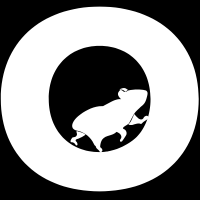Tax: The Polite Word for Penalty, enabled by the person lie
- Not A Person - Expert

- Oct 30, 2025
- 4 min read

The Hidden Engine of Control
When people hear the word tax, they think of duty, fairness, and public service — a contribution that keeps society functioning.But look closer. Tax is not a contribution; it is a structured penalty system disguised as civic virtue.It is the financial arm of a larger deception: the idea that the living being is a “person” created and owned by the state.
The Hidden Architecture of Extraction
Every tax, fine, or licence fee arises from a single presumption — that you are a person, a paper entity defined by statute.All statutes, without exception, apply only to persons, because the state can only govern what it creates.
You, the living being, were not created by the state. You were created by life itself.But from birth, conditioning ensured that you would answer to the state’s creation — the name, the certificate, the registered identity — and believe that was you.
That simple confusion — living being = person — allows the state to attach penalties, taxes, and permissions to your every act of living.
The Layered Penalty System
The modern economy is a layered web of taxation:
Work: You are penalised for producing value (income tax).
Spend: You are penalised for using what remains (VAT, sales tax).
Own: You are penalised for keeping what you bought (council and property tax).
Save: You are penalised for preserving value (capital gains, interest tax).
Die: You are penalised for passing on what’s left (inheritance tax).
Each layer is a toll for living inside a presumption. The state doesn’t earn; it extracts — because penalty is how it maintains authority over its own creation.
The “Who Will Build the Roads?” Reflex
Whenever this truth is shared, a predictable question appears:
“But if no one paid taxes, who would build the roads? Who would fund the hospitals?”
It’s a fair question — but it hides an even deeper illusion.
The roads and hospitals we depend on exist because the system first created the need for them.The same centralised model that taxes your labour also generates the scarcity, disease, pollution, and disconnection that demand large-scale “solutions.”
Consider:
People work long hours in artificial environments, creating chronic stress and illness — which fuels dependence on industrial medicine.
Centralised food systems deplete soil and health — requiring centralised transport and logistics to replace what was once local and abundant.
Cities designed for commerce, not community, destroy walkability and local trade — demanding highways, fuel duty, and public debt to maintain mobility.
The state taxes you to fund the infrastructure required to fix the very problems its own design produces.It’s a self-feeding cycle: create the symptom, sell the solution, fund it with penalties.
So when someone asks, “Who will build the roads?”, the truthful answer is:
“Perhaps we wouldn’t need such roads if life were not structured around endless commuting, centralisation, and extraction.”
When they ask, “Who will run the hospitals?”, the deeper answer is:
“Perhaps we wouldn’t need such vast hospitals if our lives, food, and air were not engineered for illness.”
The Fear of Loss
Most people defend taxation not from logic but from fear — fear of losing the only system they have ever known.Conditioning has taught them to equate control with safety and centralisation with civilisation.
This fear is understandable.But the truth is that life has always found ways to organise itself peacefully and cooperatively without central control.Community, reciprocity, and direct exchange are natural systems of support. They existed long before government, and they still thrive wherever people remember their capacity to create, build, and care together.
The illusion is that we need central authority to coordinate collective wellbeing.The reality is that central authority displaced the natural networks that once made such authority unnecessary.
When people remember who they are — living beings, not statutory persons — they rediscover how to meet their needs directly, through trust, community, and shared intention rather than enforced compliance.
The Person: The Invisible Middleman
The state cannot tax, fine, or control a living being directly.So it created the person, the invisible middleman — a paper proxy it can regulate.
Every time you register, apply, or identify, you step into that role.Every signature is a silent act of joinder — stepping into the fiction.
Yet the contract joining you to the person does not exist in law.No valid offer, acceptance, or voluntary consent can be shown.Only presumption — kept alive by silence — allows the system to continue.
When you state clearly and peaceably what you are not, the presumption dissolves:
“I am not a person. I am not a statutory creation. I have not contracted to represent one.”
No contract. No person. No authority.
The Death Tax: Closing the Account
Even death has been turned into a commercial transaction.The “estate” that gets taxed is the person’s property — not yours as a living being.It’s simply the closing of the ledger on the state’s creation.The person was theirs from the beginning; you were just the energy that animated it.
Remembering the Alternative
The goal is not rebellion, but remembrance.Natural law requires only that we do no harm, cause no loss, and respect others’ peace.That is enough to sustain any community — roads, healing spaces, and all — without compulsion or coercion.
When fear subsides, creativity returns.People discover that life beyond the person is not chaos — it is cooperation without control.
In Summary
Tax is not contribution; it is penalty disguised as duty.
Statutes bind only the person, not the living being.
The system creates the very problems it then taxes you to solve.
Fear of losing the current system blinds people to natural alternatives.
Freedom begins not by fighting the system, but by remembering what you are not.
“That which the state creates, it controls.That which nature creates, is free.”






.png)
.png)

.png)

Comments